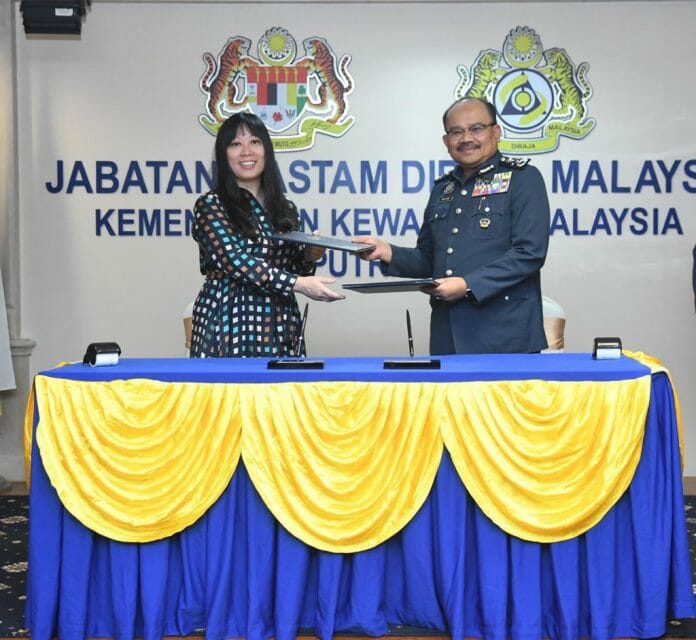IBM together with A.P. Moller – Royal Malaysian Customs Department (RMCD) has announced a collaboration to use the blockchain-enabled ‘TradeLens’ platform in Malaysia to modernise the shipping processes, create greater transparency and enhance customer satisfaction. This collaboration supports the country’s effort to promote trading and economic stability by facilitating ease of doing business.
By digitising shipping processes –TradeLens will provide RMCD with an automatic and immutable tracking tool which will lead to a more highly secure, transparent, efficient and simpler workflow, with near real-time information sharing from a diverse network of ecosystem members.
TradeLens is a digital global trade platform that enables more efficient and accurate container tracking and information sharing among platform members. The TradeLens platform, jointly developed by A.P. Moller – Maersk and IBM, digitises the voluminous, time consuming paper-based shipping processes.
Paper-based procedures are said to have created some pain points throughout the global supply chain system, with the World Trade Organization (WTO) estimating digital technologies will have a profound impact on global trade, adding up to 34 percentage points to trade growth by 20301. With TradeLens, authorities will now be able to receive shipping data as soon as containers leave the port of origin.
TradeLens will give RMCD more time to prepare for the arrival of shipments. This will enable more efficient and thorough fraud and forgery inspection as well as a more consistent and transparent revenue collection process. With the Collaboration Application Programming Interface [API] concept, all logistic activities including trucking, warehousing, shipping and freight forwarding at both domestic and global levels can now be integrated which will also improve the sharing of data-rich information through a single platform.
The blockchain technology inside the TradeLens platform promotes trust among trading partners as the record of all transactions is shared within the network and permissioned parties can access the data in real-time.
“By joining TradeLens, we aim to boost the efficiency, transparency and collaboration across supply chains. TradeLens will help us bring further visibility in a highly secure environment and will be a real asset for trade and transport facilitation, making Malaysia the preferred logistics and transport gateway in the region, said Abdul Latif bin Abdul Kadir, Director-General of Royal Malaysian Customs Department. “By adopting TradeLens, we hope it will enable us to fulfil our mission to facilitate legitimate trade, help combat smuggling and modernize the national logistics systems in support of Malaysia’s digital economy aspirations,” Abdul Latif added.
“Tradelens aims to bring innovation to the global trade ecosystem, and customs authorities play a critical role in this transformation. Using our platform, Royal Malaysian Customs Department will have permissioned visibility into supply chain activities with verified, highly trusted and near real-time data. This is an important milestone on their continuing digitisation journey while they improve compliance and facilitate more efficient trading,” said Marvin Erdly, Head of TradeLens, IBM Blockchain.
RMCD joins a number of government authorities, shipping agencies, ocean carriers and port authorities to have partnered with IBM and A.P. Moller globally.
“I believe that TradeLens and the implementation of blockchain technology in various forms will drive the modernization and facilitation of trade and benefit all stakeholders in the logistics ecosystem. We are pleased that RMCD is pioneering the digital transformation by collaborating with IBM and Maersk in bringing TradeLens to Malaysia,” said Catherine Lian, Managing Director, IBM Malaysia.
“The collaboration reflects our commitment to consistently support the government’s vision to develop a knowledge-based digital through the socialisation of transformative technologies. This is truly a public and private sector partnership with the aspiration to deliver higher value to their respective constituents and to prepare Malaysian businesses for the challenges and opportunities arising from trade liberalisation and globalisation,” Lian added.









